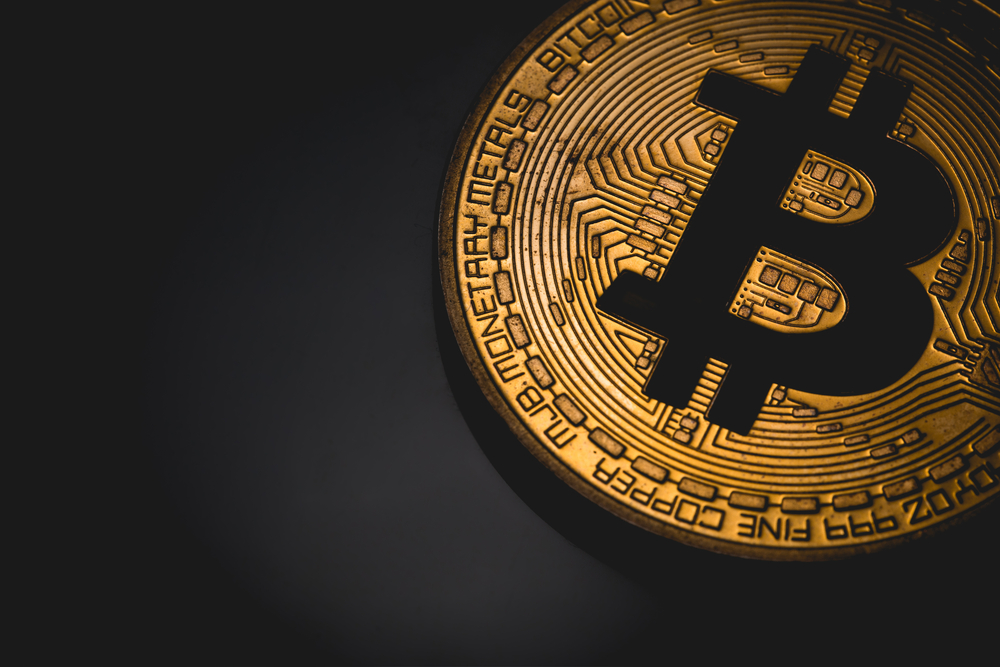US links $5.2 billion in Bitcoin transactions to ransomware
A new report from the Treasury ties the cryptocurrency to ransomware payments over a ten year period


Sign up today and you will receive a free copy of our Future Focus 2025 report - the leading guidance on AI, cybersecurity and other IT challenges as per 700+ senior executives
You are now subscribed
Your newsletter sign-up was successful
The US Treasury has identified approximately $5.2 billion in outgoing Bitcoin transactions likely to be tied to the top 10 most commonly reported ransomware payments over a ten year period.
The Treasury’s Crimes Enforcement Network (FinCEN) identified and analysed 177 convertible virtual currency (CVC) wallet addresses used for ransomware-related payments by analysing 2,184 Suspicious Activity Reports (SARs) filed between 1 January 2011 and 30 June 2021, it said in a report.
Based on blockchain analysis of transactions with the 177 CVC wallet addresses, FinCEN identified around $5.2 billion in outgoing Bitcoin transactions that may have been tied to ransomware payments.
Linking the transactions to this year, FinCen found that between 1 January and 30 June 2021, the number of ransomware-related SARs filed monthly has grown rapidly, with 635 SARs filed and 458 transactions reported during the first half of the year. This is a 30% increase from the total 487 SARs filed for the entire 2020 year. For the first six months of this year, the total value of suspicious activity reported was $590 million, exceeding the $416 million reported the previous year.
“FinCEN analysis of ransomware-related SARs filed during the first half of 2021 indicates that ransomware is an increasing threat to the US financial sector, businesses, and the public,” said the report.
RELATED RESOURCE

The best defence against ransomware
How ransomware is evolving and how to defend against it
Although Bitcoin was the most common ransomware-related payment method in reported transactions, FinCEN found the mean average total monthly suspicious amount of ransomware transactions was $66.4 million and the median average was $45 million.
It identified 68 ransomware variants reported in SAR data for transactions, with the most commonly reported being REvil/Sodinokibi, Conti, DarkSide, Avaddon, and Phobos. It also found a number of money laundering typologies common among the variants, including threat actors requesting money in Anonymity-enhanced Cryptocurrencies (AECs) and avoiding reusing wallet addresses, “chain hopping” and cashing out at centralised exchanges, and using mixing services and decentralised exchanges to convert proceeds.
Sign up today and you will receive a free copy of our Future Focus 2025 report - the leading guidance on AI, cybersecurity and other IT challenges as per 700+ senior executives
This comes after the US Department of the Treasury imposed sanctions on a virtual currency exchange in September over its alleged role in facilitating financial transactions for ransomware actors. Suex, the exchange, had allegedly facilitated transactions involving proceeds from at least eight ransomware variants.
Zach Marzouk is a former ITPro, CloudPro, and ChannelPro staff writer, covering topics like security, privacy, worker rights, and startups, primarily in the Asia Pacific and the US regions. Zach joined ITPro in 2017 where he was introduced to the world of B2B technology as a junior staff writer, before he returned to Argentina in 2018, working in communications and as a copywriter. In 2021, he made his way back to ITPro as a staff writer during the pandemic, before joining the world of freelance in 2022.
-
 Will a generative engine optimization manager be your next big hire?
Will a generative engine optimization manager be your next big hire?In-depth Generative AI is transforming online search and companies are recruiting to improve how they appear in chatbot answers
-
 European Commission clears Google’s Wiz acquisition, citing 'credible competition' from Amazon and Microsoft
European Commission clears Google’s Wiz acquisition, citing 'credible competition' from Amazon and MicrosoftNews Regulators said there are “several credible competitors” to Google regardless of the acquisition
-
 Ransomware gangs are sharing virtual machines to wage cyber attacks on the cheap – but it could be their undoing
Ransomware gangs are sharing virtual machines to wage cyber attacks on the cheap – but it could be their undoingNews Thousands of attacker servers all had the same autogenerated Windows hostnames, according to Sophos
-
 Google issues warning over ShinyHunters-branded vishing campaigns
Google issues warning over ShinyHunters-branded vishing campaignsNews Related groups are stealing data through voice phishing and fake credential harvesting websites
-
 The FBI has seized the RAMP hacking forum, but will the takedown stick? History tells us otherwise
The FBI has seized the RAMP hacking forum, but will the takedown stick? History tells us otherwiseNews Billing itself as the “only place ransomware allowed", RAMP catered mainly for Russian-speaking cyber criminals
-
 Everything we know so far about the Nike data breach
Everything we know so far about the Nike data breachNews Hackers behind the WorldLeaks ransomware group claim to have accessed sensitive corporate data
-
 There’s a dangerous new ransomware variant on the block – and cyber experts warn it’s flying under the radar
There’s a dangerous new ransomware variant on the block – and cyber experts warn it’s flying under the radarNews The new DeadLock ransomware family is taking off in the wild, researchers warn
-
 Hacker offering US engineering firm data online after alleged breach
Hacker offering US engineering firm data online after alleged breachNews Data relating to Tampa Electric Company, Duke Energy Florida, and American Electric Power was allegedly stolen
-
 Cybersecurity experts face 20 years in prison following ransomware campaign
Cybersecurity experts face 20 years in prison following ransomware campaignTwo men used their tech expertise to carry out ALPHV BlackCat ransomware attacks
-
 15-year-old revealed as key player in Scattered LAPSUS$ Hunters
15-year-old revealed as key player in Scattered LAPSUS$ HuntersNews 'Rey' says he's trying to leave Scattered LAPSUS$ Hunters and is prepared to cooperate with law enforcement
